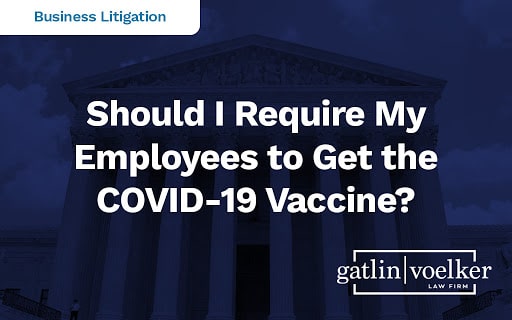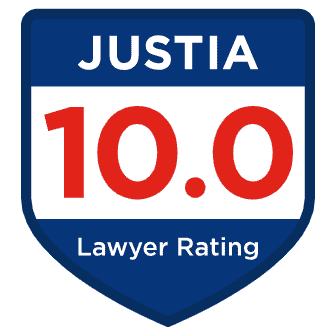Should I Require My Employees to Be Vaccinated?
With the emergency release of the coronavirus vaccine, this is the question weighing on the minds of business leaders everywhere, from small business owners to corporate CEOs. There is not a one-size-fits-all answer for everyone. When preparing to make the decision, there are several factors that should be considered:- Your industry.
- Proximity of your employees to each other, customers, or the public.
- Your employees’ general feelings about the vaccine.
- Whether the risks and benefits of requiring the vaccine outweigh the risks and benefits of not requiring it.

Healthcare workers who provide direct care are the most obvious choice for vaccine mandates. Other businesses in industries where employees have consistent close contact with each other or the public—such as food, transportation, or schools where virtual learning is more difficult—can make a strong argument for mandating the vaccine.
For businesses in other industries, particularly offices where remote work is possible or social distancing is a lot easier, it will be more difficult to make an argument for a mandated vaccine. In this case, recommending or making the vaccine optional would be easier to justify.
While this should not be the ultimate determining factor, it is important to keep this in mind. If you have strong reason to believe the majority of your employees will object to the vaccine, you may need to be a lot more cautious about how you unroll your plan to require or recommend it.
On the other hand, if your employees are already open to the vaccine or have been asking for it, you will have an easier time encouraging cooperation.
Benefits & RisksIn this decision, the primary factor that weighs in the balance is health: the health of your employees, the health of your customers or clients, and the health of the community where you do business. If your employees are at a high risk of contracting and spreading the coronavirus, that should be weighed heavily in your decision. If not, other factors may be more important to consider.
In any case, legal considerations will also have to be weighed as you determine the best course of action.
Feeling uncertain? Get in touch with one of our experienced business attorneys today.
What Legal Considerations Are Relevant in This Decision?
Requiring the vaccine or not requiring the vaccine both have legal implications for businesses. Here are some issues to keep in mind.
- OSHA Standards. Businesses must always adhere to OSHA standards for providing a clean and safe workplace. Whether you require or recommend the vaccine, or simply present it as an option, you will still need to ensure you are following all of OSHA’s guidelines.
- Workers’ Compensation. Vaccines typically result in side effects, often mild but occasionally severe. Be aware that a serious reaction attributed to the vaccine and requiring medical attention could result in a workers’ compensation claim for which you will most likely be liable. One way to mitigate this risk is to provide time off for the employees to recover from the vaccine’s side effects.
- Insurance Coverage. Before making your decision, find out whether your health insurance provider will cover the vaccine. If coverage is not available, consider paying for the vaccinations as a preventative move against any vaccine-related lawsuits or claims that may arise.
- Wrongful Termination. Be mindful of how you plan to proceed if you require or recommend the vaccine and an employee refuses to receive it. While health and safety needs to be your first concern, it’s important to exhaust all of your legal options before taking a more drastic step in order to avoid grounds for wrongful termination.
- Discrimination or Harassment. It’s important that employees do not feel coerced to take the vaccine if they have reasonable grounds for refusal, such as a disability, pregnancy, or sincerely held religious belief. Always try to use factual language and a neutral tone and be willing and ready to make reasonable accommodations to avoid being charged with discrimination or harassment.
- EUA (Emergency Use Authorization) Status. Due to the vaccine’s EUA status, when someone receives the vaccine, they will be presented with very clear language from Pfizer or Moderna (vaccine developers) as well as the FDA and CDC emphasizing the voluntary nature of the injection. Therefore it’s important to ensure that any language you dispense among employees regarding the vaccine does not come off as coercive in one direction or another.
- NLRA-Protected Protests. The NLRA protects employees’ right to protest various situations in the workplace. Union or non-union employees could come together and protest the vaccine mandate (or to demand a mandate), so you must be prepared to handle these situations cautiously to avoid them escalating into a larger issue.
What Can I Do If I Require the Vaccine but an Employee Refuses?
Reasonable AccommodationsIf the employee refuses to be vaccinated due to a disability or sincerely held religious belief, they cannot be forced to receive the vaccine. However, if they truly pose an imminent threat to the health of those around them in their current position, you may need to make an accommodation. Can the employee work remotely? Can the employee step away from the job for a leave of absence? Can the employee be temporarily reassigned to a different position that would minimize direct contact with others?
Making these kinds of accommodations will help protect you from legal backlash while providing a safe and comfortable work environment for all of your employees, including the ones not receiving the vaccine.
TerminationIf you find that no reasonable accommodations can be made and the employee is directly at risk and putting others at risk for contracting the virus, you may feel that termination is your only option. Talk to an attorney before making the final decision to ensure you fully understand state and local laws on this matter. Depending on how things are handled, you could quickly be facing a wrongful termination claim. Getting legal advice beforehand can help you avoid a lawsuit.
The Best Course of Action: Clear Communication
Deciding whether or not to require the COVID-19 vaccine is a complex decision, and employees’ mixed feelings and potential fear or uncertainty about the vaccine can add to the confusion. When navigating such a situation, the best thing to do is to communicate clearly and frequently with your employees.- Provide facts and education about the vaccine in neutral language.
- Explain why you are requiring or recommending the vaccine, or leaving it optional.
- Avoid coercive language.
- Make time to discuss employees’ concerns one-on-one.
In all of your communications with your employees about the vaccine, it’s helpful to emphasize the primary goal of providing a safe, healthy work environment for everyone.
Need some advice? This decision is a tough one, but it’s one you don’t have to make alone. Our business attorneys are here for you, 24/7. Call us at (859) 781-9100 to set up an appointment. We will help you weigh all your options and make the decision that is best for you and your business.
Jack Gatlin – Business Law Attorney
Our team can help you from the very first days you are forming your business through representation in legal matters during operation. We are comprehensive in our business legal support.













